Rhyming Words Worksheets for Ages 4-5
17 filtered results
-
From - To
Introducing our vibrant Rhyming Words worksheets, expertly crafted for the imaginative minds of children Ages 4-5! Dive into the delightful world of sounds and syllables with our engaging, colorful activities designed to spark joy and foster a love for learning. Perfect for early learners, these worksheets are tailored to develop phonemic awareness and enhance linguistic skills through fun, interactive rhyming exercises. Watch as your child discovers the magic of language, building a solid foundation for reading and spelling success. Ideal for both classroom and at-home learning, our Rhyming Words worksheets for Ages 4-5 are your key to unlocking your child's verbal potential.
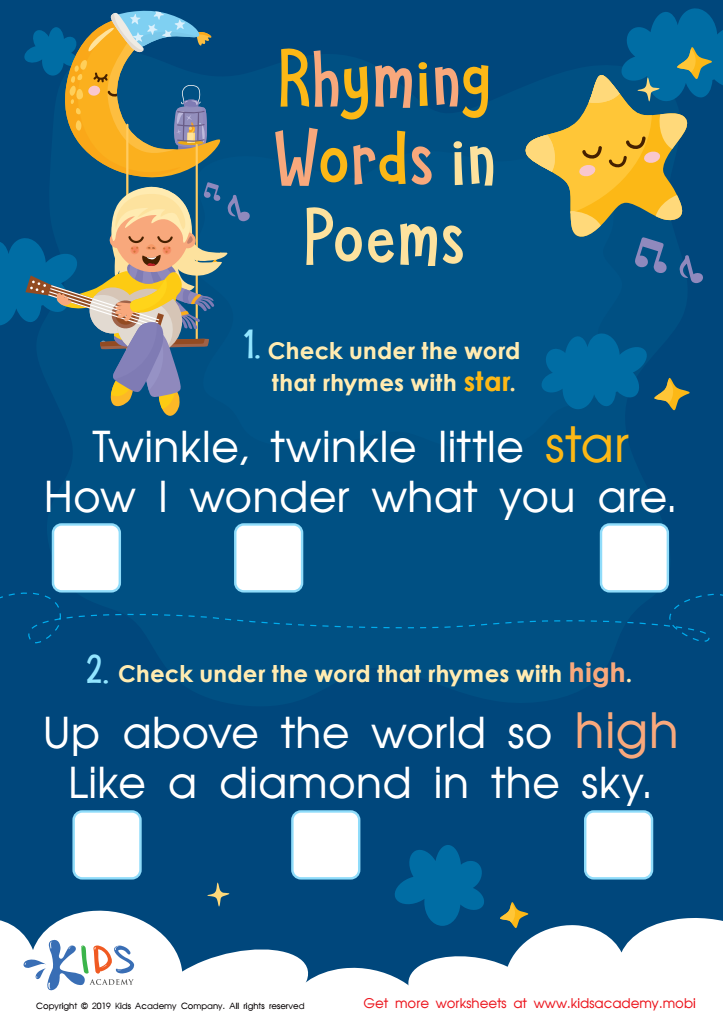

Rhyming Words in Poems Worksheet
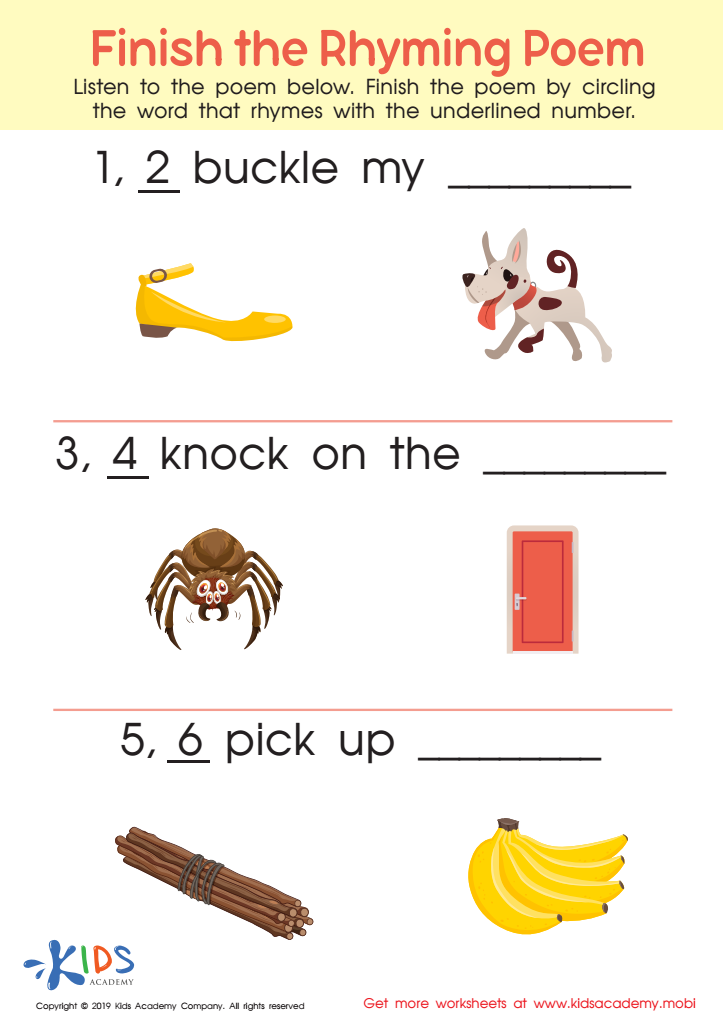

Finish Rhyming Poem Worksheet
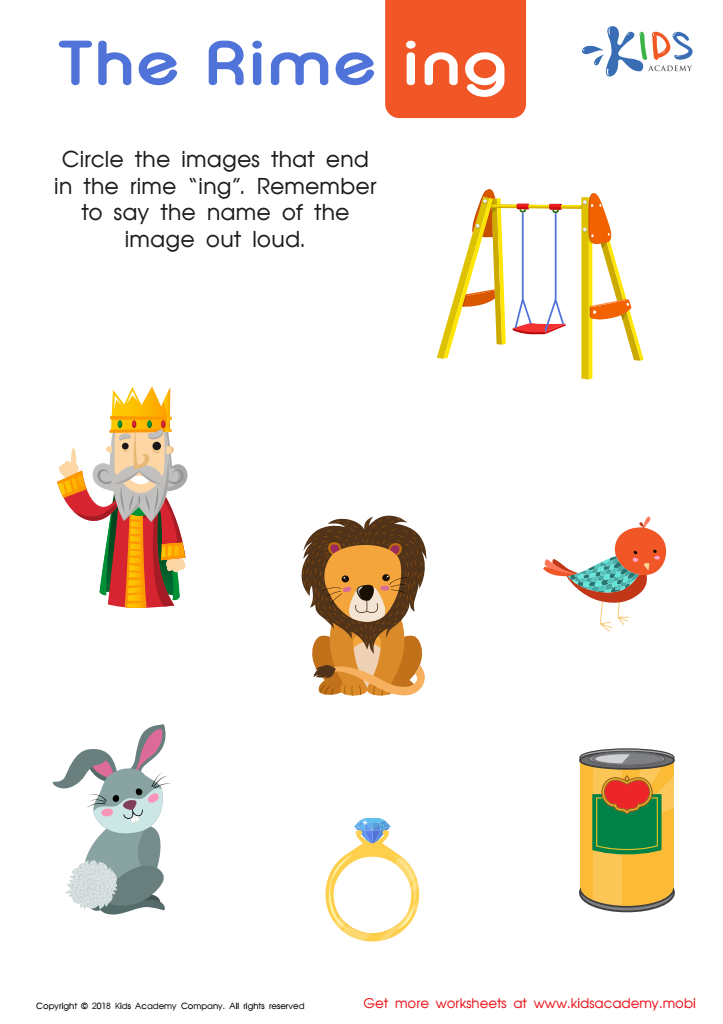

The Rime "ing" Worksheet
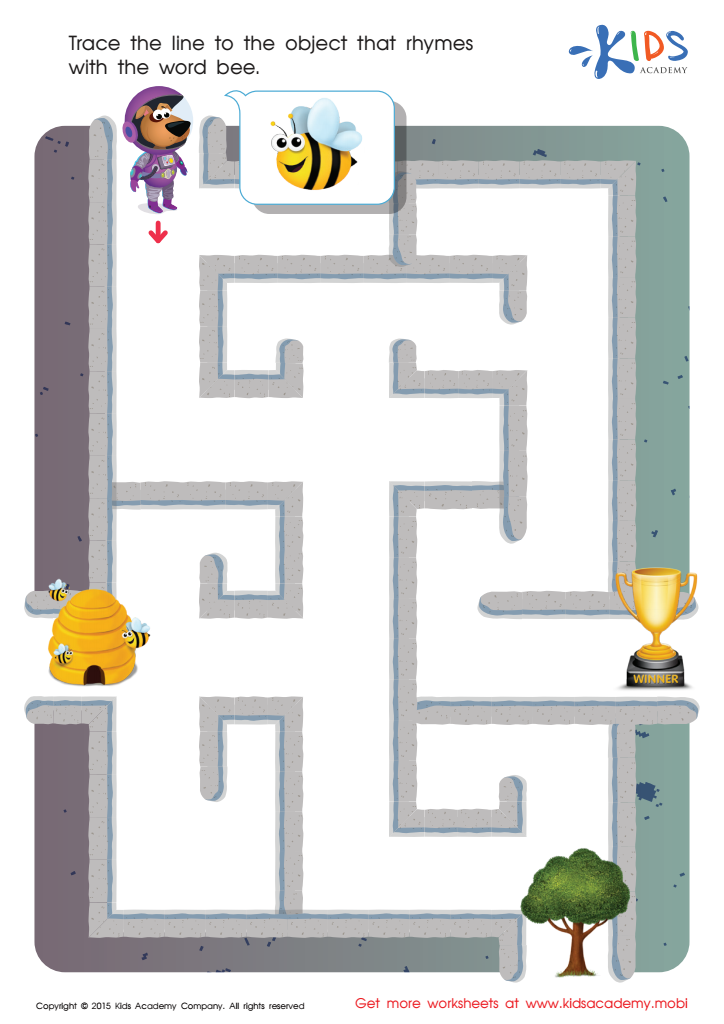

Bee Rhyming Words Worksheet
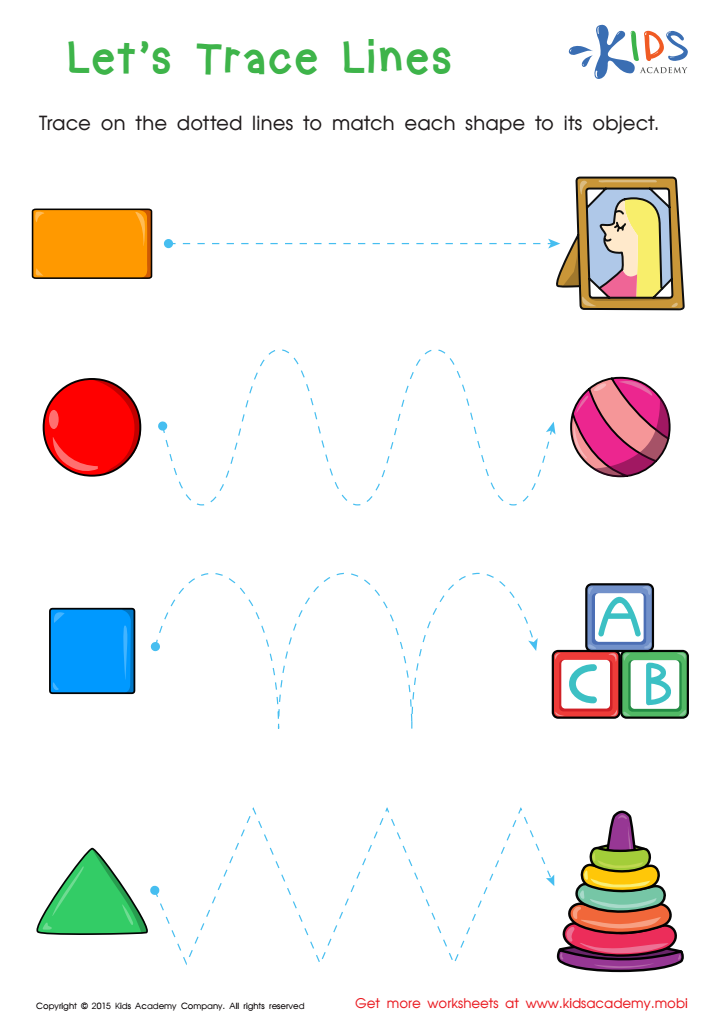

First Words: Let's Trace Lines Worksheet


First Words: Picture Rhymes Worksheet
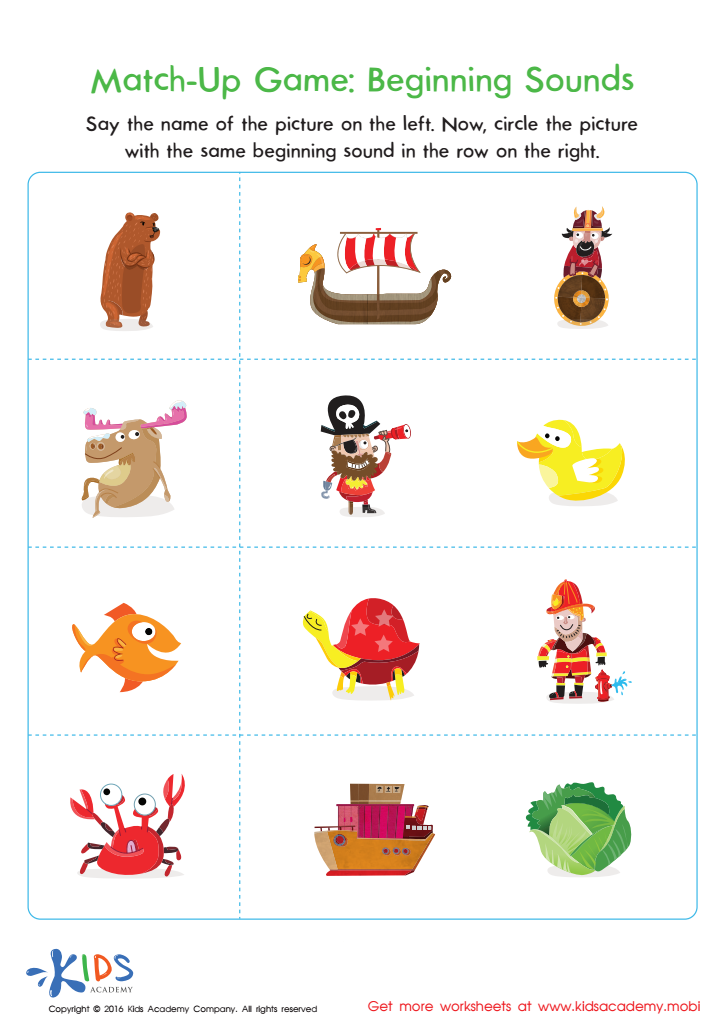

Match–Up Game: Beginning Sounds Worksheet
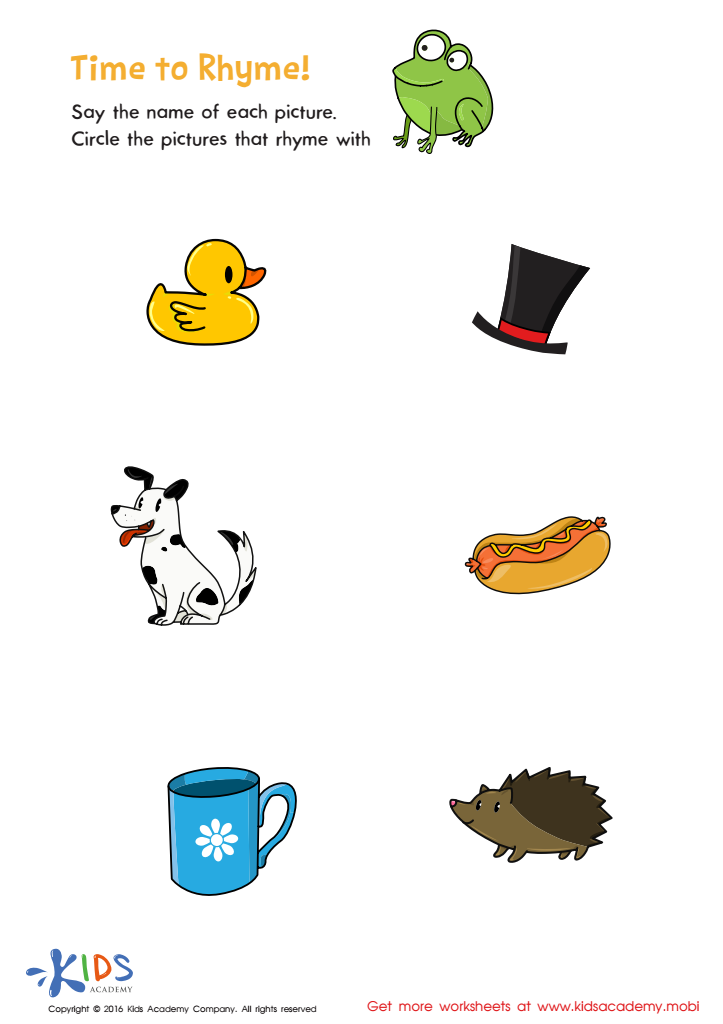

Rhyming Worksheet: Time to Rhyme Rhyming Worksheet
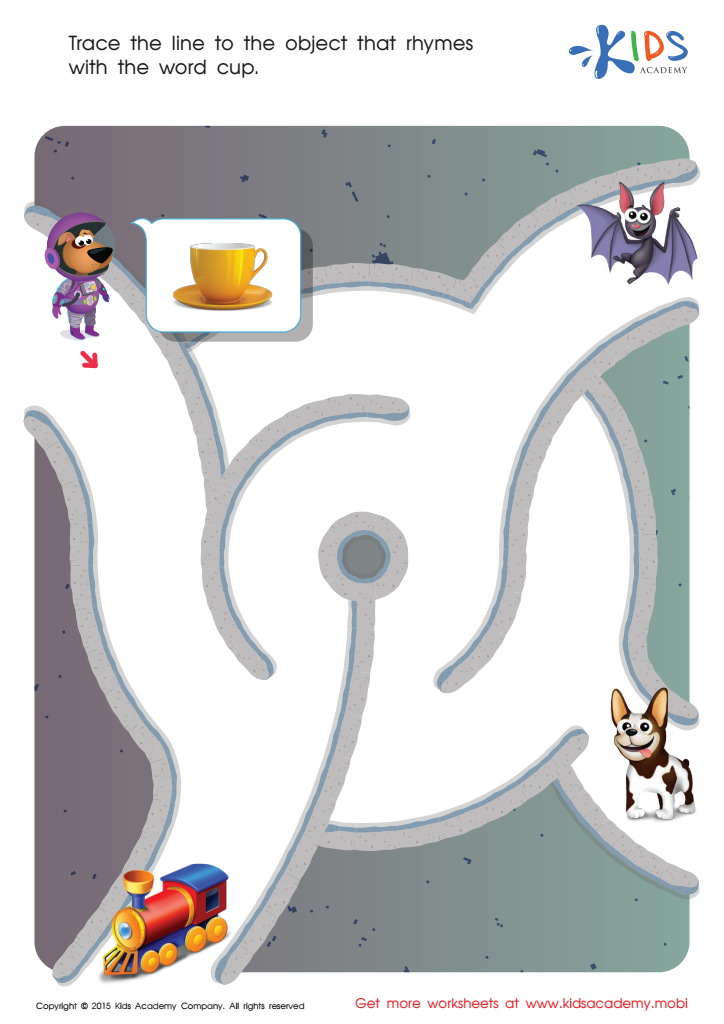

Cup Rhyming Words Worksheet
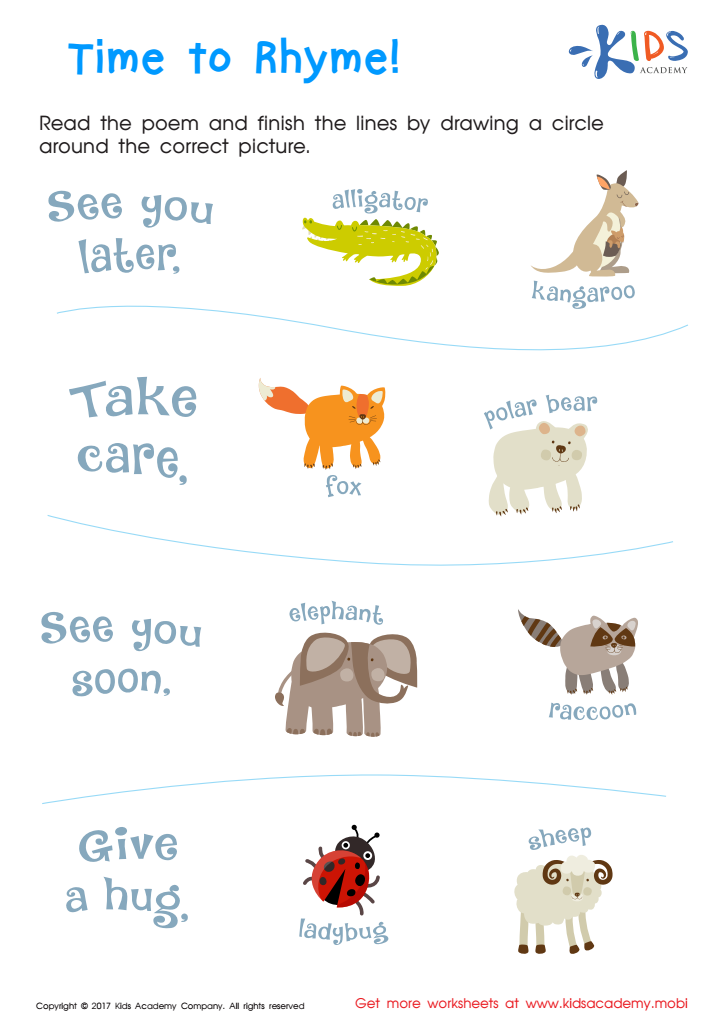

Time to Rhyme Rhyming Worksheet


Rhyming Words Rhyming Worksheet
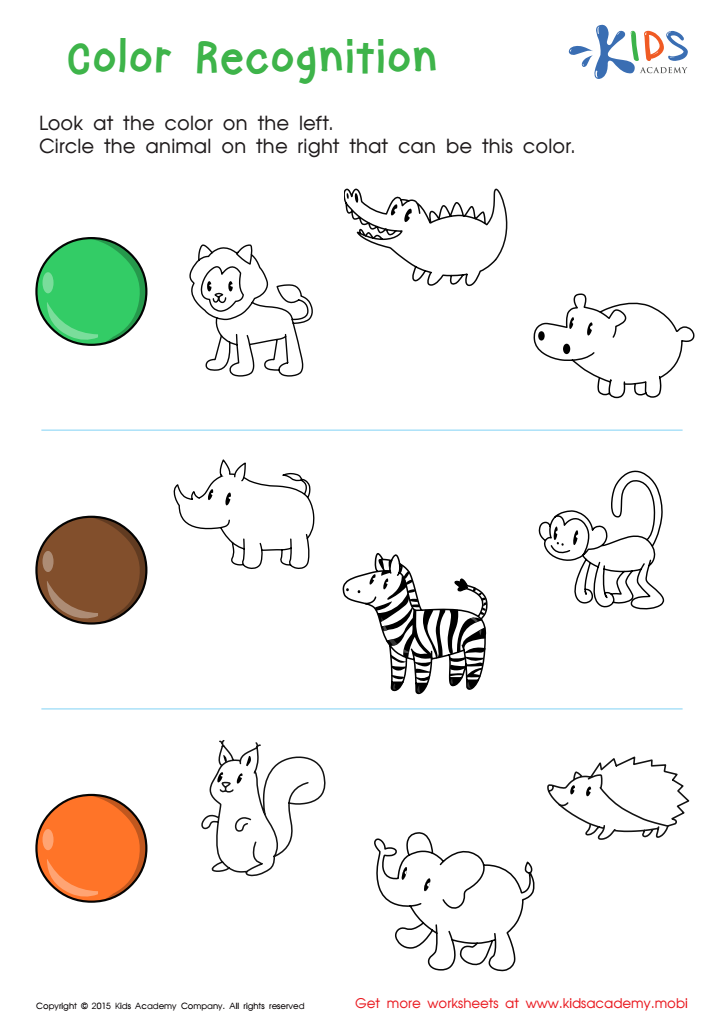

First Words: Color Recognition Worksheet
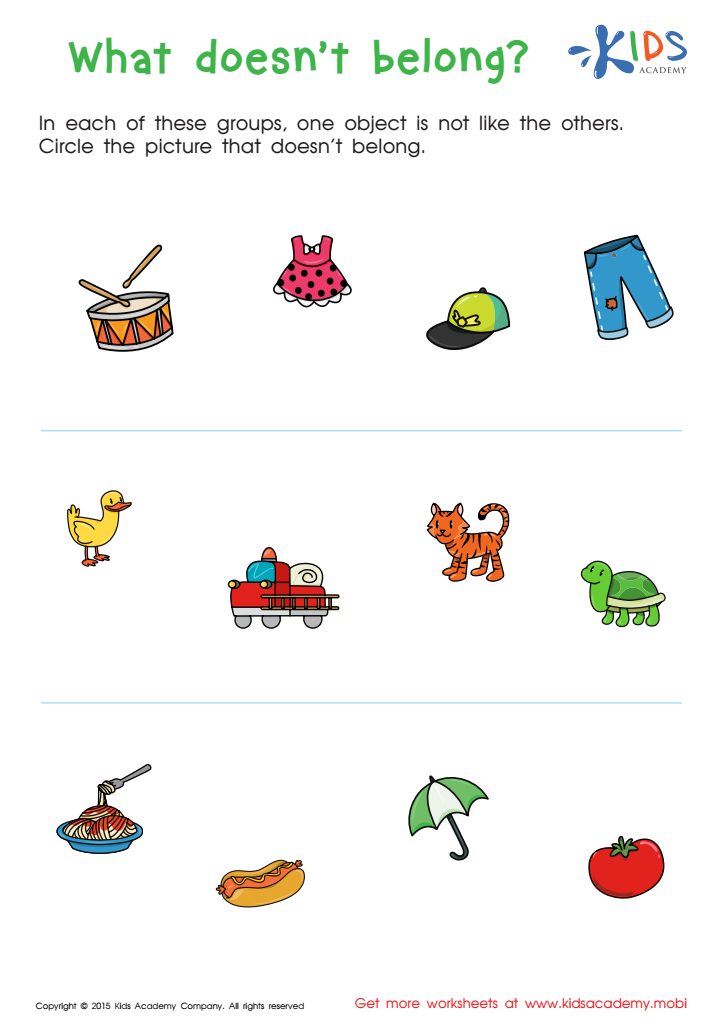

First Words: What Doesn't Belong Worksheet
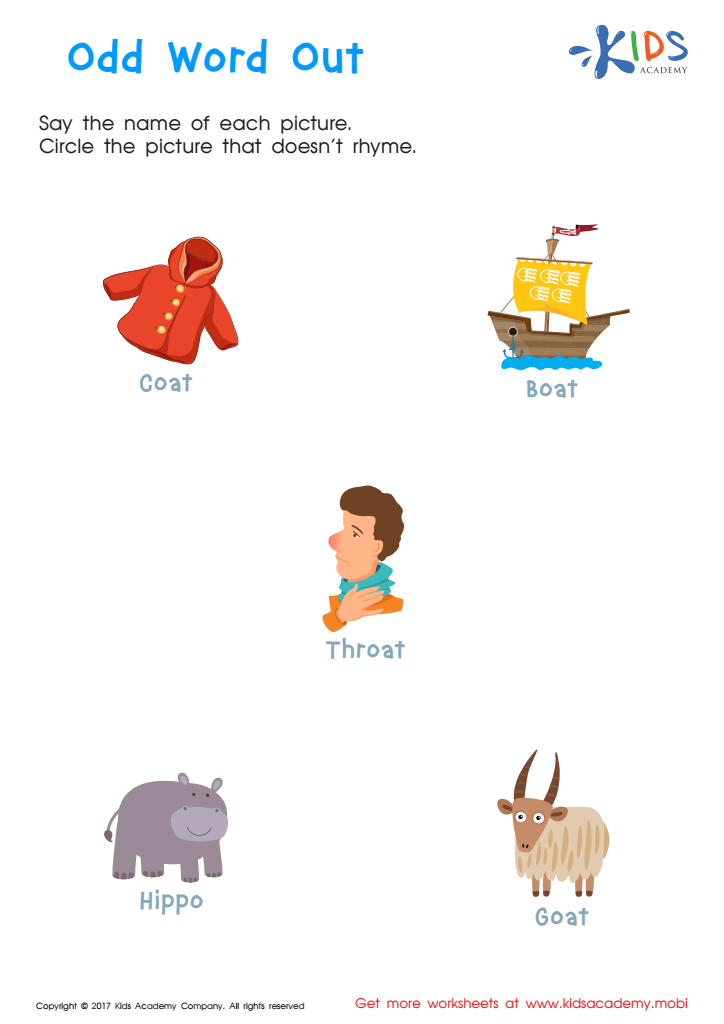

Odd Word Out Rhyming Worksheet
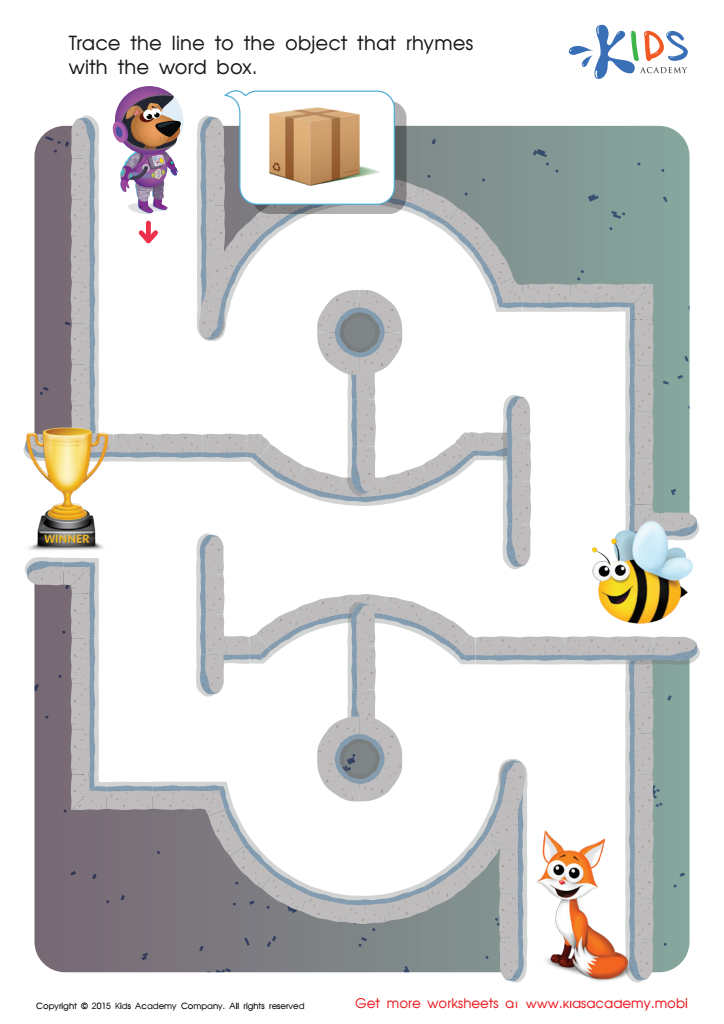

Box Rhyming Words Worksheet
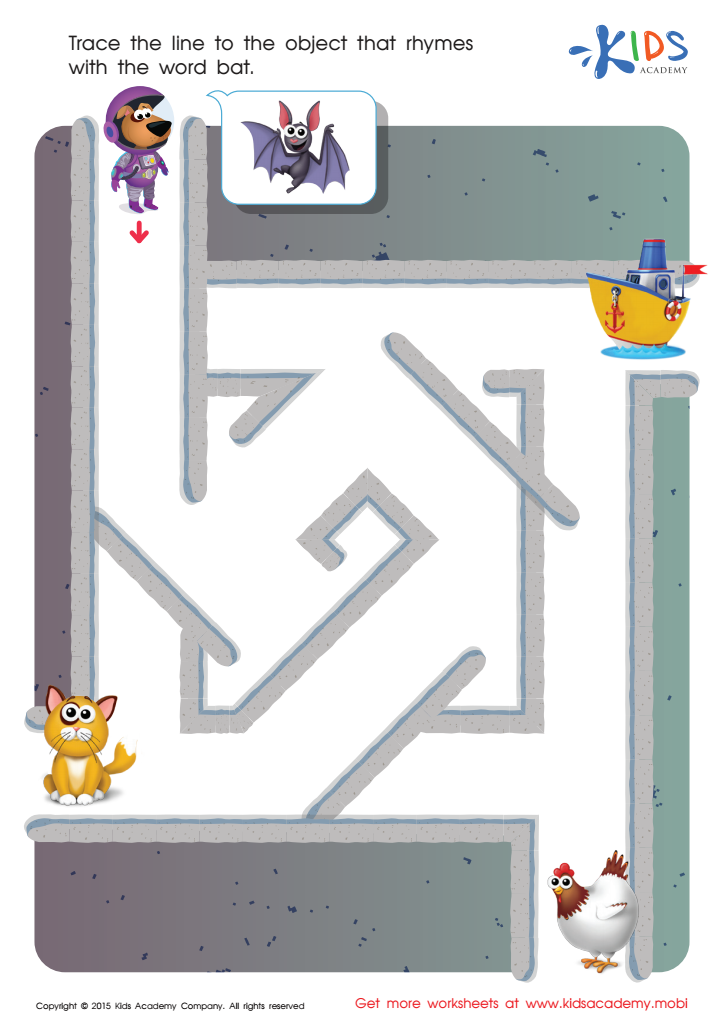

Bat Rhyming Words Worksheet
Worksheets on Rhyming Words for Ages 4-5 are a fantastic tool for early childhood development, providing a foundation for language acquisition and literacy skills in an engaging and enjoyable manner. At the ages of 4 and 5, children are at a crucial stage of learning where they begin to recognize patterns within language, making it the perfect time to introduce rhyming words. These worksheets are specifically designed to cater to their developmental needs, incorporating colorful and appealing visuals to capture their attention.
The benefits of Rhyming Words worksheets for Ages 4-5 extend beyond just fun. They are instrumental in enhancing phonemic awareness, which is the ability to hear, identify, and manipulate sounds in words. This skill is essential for reading and spelling success as it helps children understand that words are made up of different sounds and that these sounds can create patterns. Through rhyming exercises, children learn to predict and generate words that rhyme, boosting their confidence and encouraging a love for reading and writing.
Moreover, Rhyming Words worksheets offer a structured yet flexible approach to learning, allowing children to progress at their own pace. They stimulate cognitive development, improve memory, and help in building vocabulary. By making learning playful, these worksheets not only foster a positive attitude towards education but also promote early literacy in a nurturing way, setting a solid foundation for future academic achievements.
 Assign to My Students
Assign to My Students



















